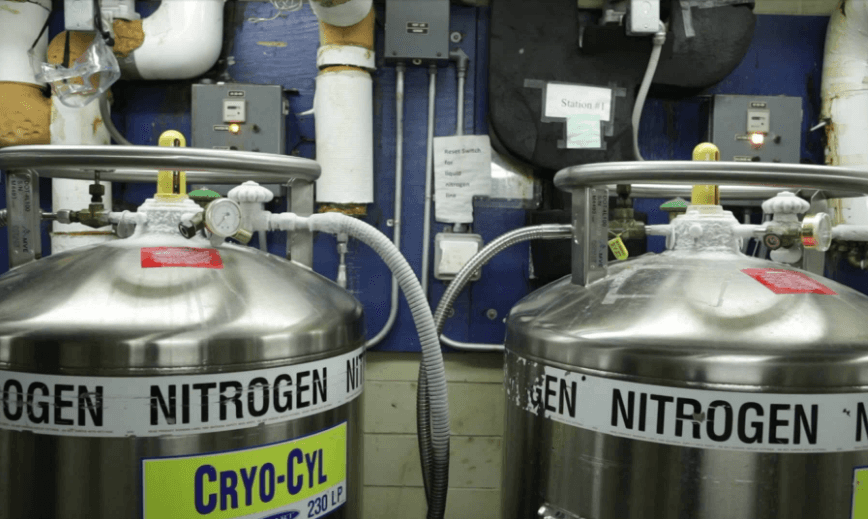A COLD FUTURE HOPE
Organ restorations and transplants are major medical events. Scientists and doctors continue to discover and refine techniques for tissue restoration and organ replacement. Currently, blood veins and valves can be frozen and then later surgically implanted into a patient. Organ transplants occur routinely, but the patient must take antirejection drugs for the organ to remain functional.
Still very much in the science fiction realm, people on the far fringe of this work hope someday to be able to freeze an entire body prior to its fatal-disease-driven death. Once the cure for that disease has been discovered, the idea is to thaw out that frozen person and begin administering a disease treatment plan. Echoing back to the science fiction TV series, Lost In Space, astronauts could be placed into computer programmed “freezing tubes” and simply thawed out and resuscitated after their long intergalactic journey is completed.
The dreamy possibilities of course are as endless as the liquid nitrogen required. Some of the folks that work on this are eternal optimists. One in particular cracked me up. Danila Medvedev is a Russian transhumanist who cofounded the Moscow-based KrioRus, an organization dedicated to some of these fringe causes. Writing in Bloomberg Businessweek , Josh Dean summarizes the technicalities of the process and Medvedev’s attitude toward any perceived difficulties:
“ The best way to cryopreserve is to replace all the water in the body with a chemical that essentially turns the tissue into glass as it freezes. Vitrification, as the process is known, prevents the damage caused by ice crystals when a body is frozen in its natural state. But vitrification has its own flaw: No one knows how to reverse it. Medvedev describes this as a minor challenge. The important thing, he says, quoting American nanotechnologist Ralph Merkle, is that ‘information is not destroyed’ by freezing. They’ll work it out later. ”
To whatever degree these endeavors might be workable, it will be interesting and beneficial. In spite of your feelings about human mortality, much of the work in this field is based on established science. Yet that established science does not necessarily render it believable. Nevertheless, Medvedev and his cohorts hope to create new capabilities:
“ Further down the road is the possibility of short-term clinical freezing, in which a patient is placed into a temporary cryonic state to keep him or her alive while recovering from traumatic injuries, say, or during space travel. The military is looking at the former; NASA has begun some very preliminary studies on the latter. ”
This is all quite fascinating. However, in the meantime I would endorse maintaining all your personal health and safety protocols—physically, mentally, and spiritually. No one has any guarantee as to when that cold winter might arrive.











